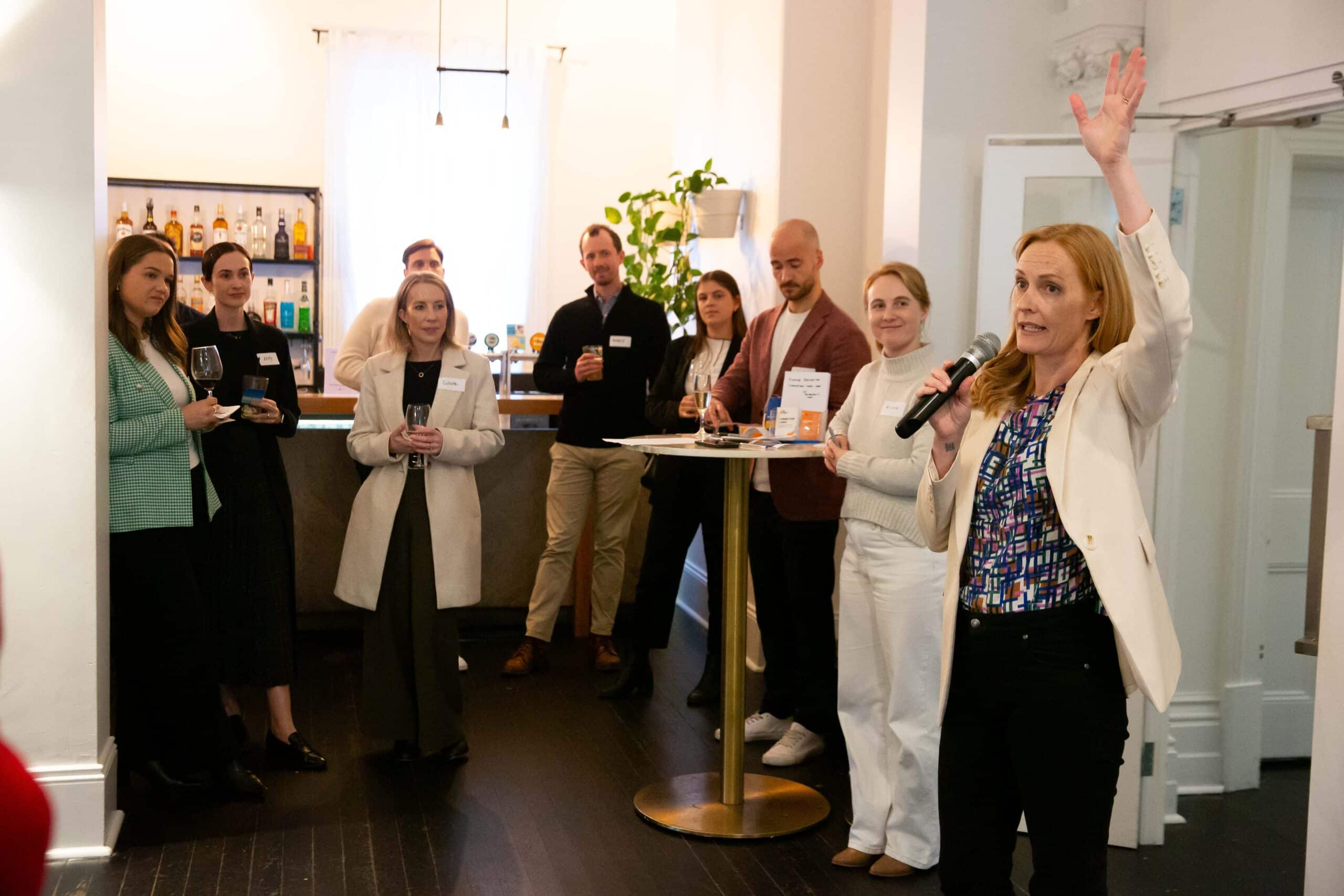The biggest challenges women face balancing work and motherhood
This Mother’s Day, we’re spotlighting the lived experience of working mums—and the invisible pressures they carry every day. For many, the struggle to “have it all” isn’t about ambition—it’s about survival. In Part 1 of our series, we explore the systemic and practical hurdles mothers face when juggling work and family life, and discuss solutions that can actually make a difference.
A wise woman once said you can have it all, but not all at once.
Another wise woman said having it all doesn’t mean you have to do it all.
Many women experience challenges maintaining the dual roles of being a professional and a mother. While the progress towards gender equality has been significant, the struggle to balance these two vital aspects of life remains a persistent issue for many women– managing a job, taking care of family, finding alone time, and dealing with personal and wider issues can be a lot to juggle. Balancing work and raising kids can feel overwhelming, and make women feel torn between their job and family. On top of that, with the cost-of-living crisis we’re facing, many families are having trouble affording food or housing in the past year, which only adds to the pressure.
Here, we delve into some of the most significant challenges women encounter when trying to juggle work and motherhood and explore potential solutions you could try to lessen the load and find some space.
Time management and fatigue
One of the most immediate and palpable challenges is the sheer lack of time and energy. Balancing the demands of a career with the responsibilities of parenting often leads to a time crunch and often leaves mums feeling depleted. Women find themselves stretching their days to accommodate work hours, childcare, household chores, and personal time – which often falls to the wayside. This relentless pace can lead to fatigue and burnout, resentment and exhaustion, impacting mums’ mental and physical health.
Solution ideas: If we aren’t looking out for ourselves, we can’t look out for others. Looking out for – and communicating – your own needs is essential. Ask for help from your partner, workplace, family members, friends or other loved ones. You shouldn’t have to do it all on your own. Try using time management strategies like setting schedules, writing to-do lists, and using productivity tools, ensuring you’re sharing the load. If possible, talk to your workplace about flexible working hours or part-time, and set firm boundaries up front. Take the little time you have to rest – often we go to things like scrolling our phones, which doesn’t always restore us. Try and use your free moments wisely – like taking 3 deep breaths or looking at the sky.
Guilt and Societal Expectations
The concept of ‘mummy guilt’, where women feel they are not doing enough for their children due to their work commitments is well-documented. Conversely, there’s also the pressure to excel professionally and keep afloat financially. This can create a tug-of-war and leaving mums feeling stuck in limbo between being a mum and having a career. Society often holds mothers to higher standards of caregiving than fathers, which can exacerbate these feelings and make mums feel more alone.
Solution: Open discussions about shared parenting responsibilities and having your partner take on some of the burden can help alleviate some of this guilt. Employers and society need to recognise and support the dual roles of working mothers, perhaps through parental leave policies that encourage equal participation from both parents. Finally, mums need to remember there is no such thing as perfection, and we simply can’t do it all. Instead embrace self-compassion and acceptance and know you’re doing your very best.
“Trying to do it all and expecting that it all can be done exactly right is a recipe for disappointment. Perfection is the enemy.” – Sheryl Sandberg
Career progression and the motherhood penalty
While motherhood can be wonderful, often women have to pay a higher price to experience it. Research has shown that women often face a ‘motherhood penalty’ where career progression slows down post-children. Having children has a bigger impact on women’s employment rates, transitions and status than it does on men. This can be due to biases in the workplace, the need for flexible hours which might not align with traditional career paths, or simply less time available for professional development.
In the first five years after having children, women typically reduce their paid work hours by around 35%, resulting in earnings that are 55% lower than their pre-pregnancy income. This earnings gap remains significant for at least a decade after becoming a parent. In contrast, men’s paid work hours only dip during the first month of fatherhood before returning to their previous levels. On average, a 25-year-old woman who has one child is projected to earn $2 million less over her lifetime than a 25-year-old man who also becomes a parent.Many traditional workplaces are not designed with the needs of working mothers in mind. Inflexible hours, lack of remote work options, and a culture that might not value work-life balance can make it nearly impossible for women to manage both spheres effectively.
‘Balance is Impossible; Memories are Better’ Marci Fair
Solution: Have the upfront conversations early with your partner and your boss so this doesn’t come as a big slap in the face, and you have some control and support. Companies need to implement and promote policies that ensure career progression for mothers, like mentorship programs, flexible career paths, and recognising part-time work in career evaluations. Project base work can be very fulfilling because it means can complete something from beginning to end and be acknowledged for that.
A shift towards more flexible work environments, where remote work, flexible hours, and job-sharing are normalised, can make a significant difference.
Childcare accessibility and cost
High-quality childcare is often expensive and not always accessible, particularly for women in lower income brackets or those working non-traditional hours. The lack of reliable childcare can lead to missed work opportunities or reduced hours, impacting financial stability and career growth. Not to mention the stress all parents face instability around their child being care for.
Solution: Governmental subsidies for childcare, employer-provided childcare facilities, or tax benefits for childcare costs could significantly ease this burden. Community-based solutions like cooperative childcare can also be explored.
Mental health and support systems
There is always so much to do, and she very rarely feels like she wins, is in control, or gets on top of things. -Libby Weaver
The stress of balancing work and motherhood can take a toll on mental health, leading to difficulties including anxiety, postnatal depression, or burnout. The isolation that can come from trying to manage everything alone, especially without a robust support system, can compound these issues.
Solution: Building strong support networks, both personal and professional, is crucial. Seek help from your community. If you’re struggling, there is mental health support out there for you. Speak up and get help. You can’t be the best mum if you’re not okay yourself. Employers should consider providing mental health resources, and there should be community or government initiatives aimed at supporting maternal mental health. We all need to do our bit to support mums.
Our takeaway
The challenges of balancing work and motherhood are complex and multi-faceted, requiring both personal strategies and broader societal changes. As we move forward, it’s crucial that we continue to advocate for policies that support working mothers, celebrate their contributions, and recognise the value they bring to both the workforce and their families. We must create a more equitable environment where women don’t have to choose between a thriving career and being a present, loving mother.
Authors: Amy Smith – Chief Transformation Officer at Be Well Co & Esme Fabry – Knowledge and Translational Specialist at Be Well Co, Registered Psychologist
Want to Read More?
 Wellbeing
Wellbeing
Do we need to rethink how we think about mental health?
We often treat mental health and mental illness as opposites. If you are not mentally ill, you must be mentally well. If you are struggling, wellbeing must be low. Research suggests it is not… 03 Mar 2026 3 min read Wellbeing, Workplace
Wellbeing, Workplace
Creating psychologically safe teams
Why Psychological Safety matters and how we build it together Based on Be Well Co’s “Psychological Safety for leaders” workshop Psychological safety has become one of the most important foundations of healthy, high-performing teams…. 18 Nov 2025 Wellbeing, Workplace
Wellbeing, Workplace




